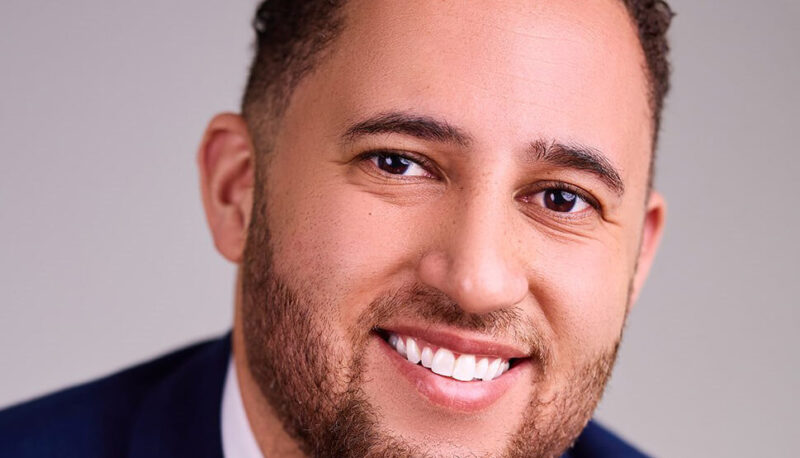More devastating rulings are expected soon from the Supreme Court’s far-right majority, according to a legal expert interviewed by People For the American Way President Svante Myrick. On June 21, Myrick held a conversation with Prof. Leah Litman, co-host of the Strict Scrutiny podcast on the Supreme Court. Their online conversation was part of a Supreme Court term debrief hosted by the National Conference of Jewish Women and the Leadership Conference Education Fund.
Myrick is a Board member of the Leadership Conference For Civil and Human Rights. In addition, People For the American Way is a co-chair of the Leadership Conference’s Fair Courts Task Force.
The discussion focused on some of the Supreme Court’s blockbuster cases from this term, most of which are expected to be released before the July 4 holiday. At this same point in some recent terms, the Court had released a handful of moderate opinions, leading some reporters to write stories premised on the majority’s moderation. But by the end of the term, the Court had released its most devastatingly harmful opinions, showing the short-sightedness of those earlier news stories.
With that in mind, Myrick teed up a question for Prof. Litman: We’ve seen good – or at least not bad — opinions in cases involving the Voting Rights Act and the Indian Child Welfare Act. Does that mean we’ve misjudged the majority?
Litman said no. She explained that the current majority is so extreme that the only realistic outcomes range from keeping the law as it is to radically revising it to further the far-right agenda. While the two cases are to be celebrated, they simply reaffirmed the status quo. They didn’t actually make progress toward advancing civil rights.
She also pointed out the impact of public opinion on the conservative justices. The Court’s plummeting approval rating may drive at least some of the justices to hold back in a few cases. Myrick noted a rally of activists outside the Court planned for the next day at which he would be speaking on the need for Supreme Court reform.
And, of course, the term is not over.
That led to a discussion of the cases that are left. For instance, Myrick pointed out that the challenges to affirmative action in higher education were brought in order to divide our communities. He also noted the importance of affirmative action in giving students of color fair opportunities, and in making colleges diverse places to learn. Litman explained that even if the majority strikes down affirmative action in higher education, the way they write their opinion will determine how much of an impact (if any) there will be on diversity efforts in other parts of society. Myrick and Litman also discussed the cases involving student debt relief and creating a constitutional right to discriminate against LGBTQ people.
Myrick noted the Biden administration’s incredible record of filing lower federal courts with judges committed to fairness and equality. Litman observed that since the Supreme Court hears so few cases, the decisions of the lower court judges are almost always the last word. That makes them incredibly important. She also pointed out the impact of Trump judges: Extreme right-wing opinions from lower courts change the types of cases the Supreme Court hears and shift the range of what is considered politically acceptable.
Their conversation also touched on the lack of binding ethics rules for the Supreme Court, and whether justices even care about how the public perceives them. Litman noted that if they didn’t care, they wouldn’t go out on speaking tours to complain about being perceived as partisan hacks. Myrick noted Samuel Alito’s “prebuttal” attack on a ProPublica exposé that had not even been published yet: “A hit dog will holler.”
Myrick ended his portion of the conversation with a reminder that the American public is still in the driver’s seat. If we are outraged by the Supreme Court majority, then we have the power to change things by voting. Authoritarians are attacking the democratic tools designed to combat authoritarianism. Although the battle ahead of us is long, we can win it.

